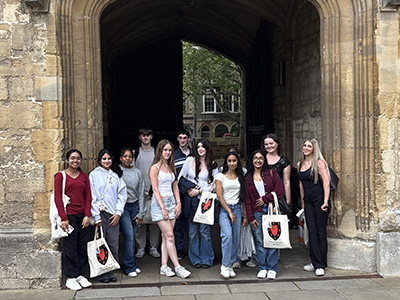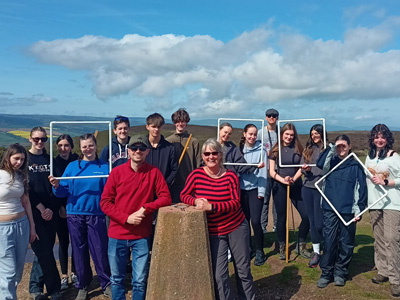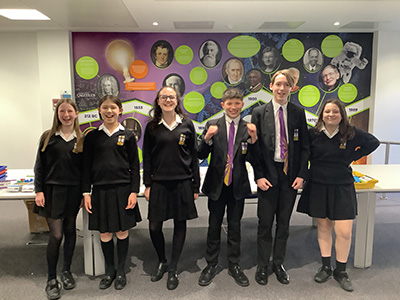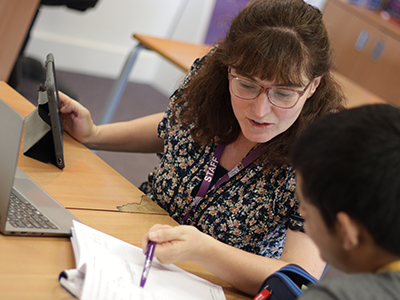The Inspire Teaching School Alliance TeachMeet
This is an opportunity for teachers of all experiences to come together, share best classroom practice and practical ideas with colleagues from other schools. This is a free CPD event and a brilliant way to enhance your teaching pedagogy by learning from other members of the teaching profession.
We are pleased to announce our keynote speaker is Dr Julia Sutherland from the University of Sussex (please see below). All subsequent presentations will be from teachers across a range of subjects and from a variety of different schools lasting no longer than 7 minutes. Each will give you a great idea or strategy to take away and try within your own classrooms. If you would like to present, please sign up as a speaker.
We look forward to welcoming you to our TeachMeet!
Tuesday 26th June, 16:30-18:30, St Paul’s Catholic College (Burgess Hill)

Confirmed places: Ms Katherine Barlow, Miss Deborah Bernarde, Miss Martha Boyne, Mrs Chauvan Brookes, Mr Rob Carter, Mr Thomas Clarke, Miss Abigail Dearling, Mr Matthew Donald, Mr Matt Duffield, Mrs Sarah Duffield, Mrs Claire Farrell, Ms Casey Floyd, Ms Laura Fradgley, Miss Debbie Friis, Miss Elizabeth Holmes, Mrs Stella Knight, Mrs Fiona Norden, Mr Nick Patterson, Mr Ben Wright, Mr Dan Smith, Miss Faye Stead, Dr Michelle Tickner, Mrs Katie Turner, Mrs Sophie Willson-Morris, Dr Keith Perera, Mr Graham Jones, Ms Fran Kerr, Ms Fallon Sheffield.
Keynote:
Dr Julia Sutherland - A faster, ‘Immersive’ read: how to enable progress for weak readers at KS3 and KS4.
A fifth of secondary students lack the reading skills to succeed at GCSE and beyond. Julia Sutherland explores an innovative approach to reading, based on recent research at Sussex University, which enabled weak readers to progress, on average, by 16 months in their reading in 12 weeks. The model is now being used by over 40 schools in London and the south-east.
Julia Sutherland was a Head of English and senior leader for 16 years, mainly in London schools. Currently a senior lecturer at the University of Sussex, she teaches on a range of courses, including the English PGCE and the MA in Education. Julia’s research focuses on reading, collaborative talk, classroom discourses and practitioner research.
Miss Debbie Friis - Using multiple choice diagnostic questions as a tool to inform teaching
Recently I have been using carefully selected diagnostic multiple choice questions at the start of my maths lessons to check students’ previous learning and understanding. I will explain how I decide on the questions (and the answers), how I manage this in the classroom, and how the outcomes inform what I decide to do next with the class.
Miss Elizabeth Holmes - Revision sessions … Making better use of student and teacher time
A new way with revision for the St. Paul’s Music Department this year as we get to grips with the demands of our new specification - this presentation will unpick the use of specific attainment based groupings for intervention sessions, specifically with a GCSE Music class of broad musical experience and attainment. The intention was to make better use of student time and teacher time by making sessions more bespoke for the needs of each small group.
Mr Dan Smith - Using OneNote to store, organise and review students' digital work
A prerequisite to using innovative technology successfully is students having the ability to store and organise their digital work for effective revision. Equally, teachers need ways to review, and easily give feedback on, student work. I will demonstrate how OneNote is being used by two GCSE Computer Science classes and the impact that it has had on students' learning.
Mr Graham Jones - Lessons in a shoe box - a simple tool for extending the G&T student
Have you ever had seen gifted and talented students finish their work quickly with ease? Then, for their extensions task given more of the same questions or problems to solve? In which case, this presentation aims to give practical ideas which can be used to extend the learning of gifted and talented students, or provide an incentive for students making rapid progress to try something different.
Ms Fran Kerr - Differentiation for Down syndrome
This looks at the areas that need to be covered for appropriate differentiation for a student with Down syndrome, to enable them to access curriculum.
Ms Fallon Sheffield - The Art of Memory
Ever wondered how the character Sherlock Holmes was able to retrieve knowledge from the deep dark corners of his brain? Whether it is for a party trick or to help students remember facts, I would like to introduce you to the Mind Palace Technique - a simple and effective way to create memories you can recall in seconds. Take control of your long term memory and show your students how they can do it too.








